Some deliveries may take a little longer than usual due to regional shipping conditions.
Customer Services
Copyright © 2025 Desertcart Holdings Limited


In Patagonia (Penguin Classics) [Chatwin, Bruce] on desertcart.com. *FREE* shipping on qualifying offers. In Patagonia (Penguin Classics) Review: A classic for both travelers and writers alike. - One of the greatest travel books of all time. While not specifically a 'Rick Steves' guide to Patagonia, it is more like "On the Road." Meant to be a very personal account of his travels, and his knowledge of this strange part of the world. It has been proven since it's publication to be full of fictional or not properly recreated stories, but regardless, you will never forget this book. Still a classic after nearly forty years. Chatwin's writing is almost dreamlike at times, and others, when he slides back into a story of Darwin, or rounding the Cape in a square rigger a hundred years before, is incredible. If you are a writer or wanting to be one, you could do worse than read this book simply for the astonishingly beautiful passages. It is on my bookshelf next to Herodotus and the diaries of Marco Polo. Review: Real life adventure in Patagonia. - Currently reading, and I had to go ahead and review it. I've only heard of Patagonia before delving into this book. I love Chatwin's descriptions of the land and the people of this forgotten South American area. Part travelogue, part history, this book really takes you to the desolation of the land where you meet Welsh, a Russian double amputee nurse and learn the history of Butch Cassidy and the Sundance Kid during their time in Patagonia. I'm really enjoying this book and love the adventure.





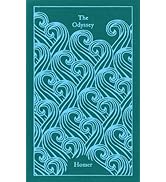




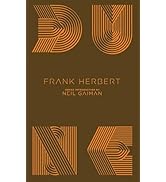
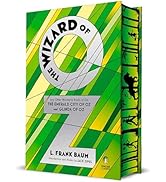

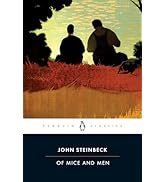
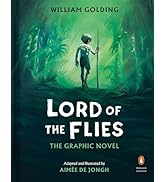





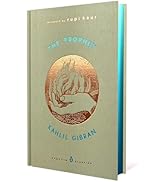

| Best Sellers Rank | #43,630 in Books ( See Top 100 in Books ) #4 in Argentinian History #35 in Travel Writing Reference #127 in Traveler & Explorer Biographies |
| Customer Reviews | 4.0 out of 5 stars 1,665 Reviews |
A**A
A classic for both travelers and writers alike.
One of the greatest travel books of all time. While not specifically a 'Rick Steves' guide to Patagonia, it is more like "On the Road." Meant to be a very personal account of his travels, and his knowledge of this strange part of the world. It has been proven since it's publication to be full of fictional or not properly recreated stories, but regardless, you will never forget this book. Still a classic after nearly forty years. Chatwin's writing is almost dreamlike at times, and others, when he slides back into a story of Darwin, or rounding the Cape in a square rigger a hundred years before, is incredible. If you are a writer or wanting to be one, you could do worse than read this book simply for the astonishingly beautiful passages. It is on my bookshelf next to Herodotus and the diaries of Marco Polo.
A**T
Real life adventure in Patagonia.
Currently reading, and I had to go ahead and review it. I've only heard of Patagonia before delving into this book. I love Chatwin's descriptions of the land and the people of this forgotten South American area. Part travelogue, part history, this book really takes you to the desolation of the land where you meet Welsh, a Russian double amputee nurse and learn the history of Butch Cassidy and the Sundance Kid during their time in Patagonia. I'm really enjoying this book and love the adventure.
R**D
genius or attention deficit disorder?
Befitting of a genius with an active and wide-ranging mind, Bruce Chatwin has a charm and intensity that might lead you to believe he has attention deficit disorder. Drifting from one narrative thread to the next between chapters (each just a few pages long), he delves deep into the story of each person he meets, and substantiates these stories with literary and/or historical references. Though a few themes recur (e.g., the search for the lost mylodon and the story of Butch Cassidy's escape to Argentina), this is a book that is easy to put down between fragmented sections. And yet, it is still overall an enjoyable work. Travelers are far more likely to go to Patagonia to avoid people than to learn about them, but Chatwin gracefully pulls of this challenge. Selflessly, he leaves himself out of the story- though Nicholas Shakespeare's introduction notes that Chatwin had a noteable love affair and was arrested in Chile. Unfortunately, Chatwin's narrative is short on dialogue and his description of people is typically terse and short on details, which prevents characters from coming to life. However, Chatwin shows traces of poetic brilliance ("music ghosted from the piano as leaves over a headstone"), an eye for metaphor (noting that in the obscure Yaghan language the word for depression is the same as the word for a crab's vulnerable phase after sloughing off a shell), persistence (evidenced by his uncovering of the origin of the name Patagonia), and bits of dry humor ("The Indian settlements were strung out along the railway line on the principle that a drunk could always get home.").
P**Z
incredibly prose for a non fiction narrative
Great reading for anyone interested in Patagonia’s history and culture. The people described as the European inhabitants of this place belong to a world of magic realism seeking it through the eyes of Bruce Chatman.
M**M
Patagonia novel
Great travelogue/ novel- doffs hat to Butch Cassidy & The Sundance Kid. Fun. One of the remaining Wild West frontiers.
G**.
Reminiscent of "On the Road" and "Blue Highways"
When Bruce Chatwin’s classic and offbeat travel narrative “In Patagonia” first appeared in 1977, many readers didn’t know what to think of it. Its publication coincided with my sophomore year at seminary and—boggled down with theological tomes and a recently acquired fondness for the works of John D. MacDonald--I missed the event altogether. It was to be forty years before one of my children (they are all avid readers, God bless ‘em!) brought the book to my attention. Chatwin had been working with the (London) Sunday Times Magazine when an interview with the elderly architect Eileen Gray inspired him to see the varied and desolate area that lies at the southernmost tip of South America. The rumor (not exactly true) is that Chatwin left a note for his employer that read simply, “Have gone to Patagonia.” Gone to Patagonia! How often have we on a day-dreamy kind of afternoon wanted to make the same journey? Patagonia is a region whose struggles and eccentricities are richly woven into the historical fabric of the South American continent. In modern times, Patagonia has been the refuge of scoundrels, outlaws, misfits of all kinds and individuals orphaned by time or by fate. Nicholas Shakespeare’s introduction to the book is excellent and the book itself is one you will never forget. I read it this time for pleasure but will read it again someday to unravel some of its mysteries. There are too many names and dates and places to absorb on a first encounter with “In Patagonia.” If you haven’t read it—do yourself a favor. Put aside that book that is boring you and read about this place called Patagonia which lies at the very ends of the Earth. Reminiscent of Jack Kerouac’s “On the Road” and William Least-Heat Moon’s “Blue Highways,” Chatwin’s “In Patagonia” will grip you and never let you go.
S**R
In Patagonia
Extraordinary account of the Bruce Chatwin's travels through the Patagonian steppe to Tierra del Fuego. Infused with historical stories that provide a backdrop for the lands he visits, the story here is remarkable. An artifact belonging to his family provides the gravity that pulls him to the southern reaches of South America. He realizes from the beginning the artifact is likely apocryphal, but that becomes an essential element to the story as it lends a fantastical air to the voyage, as if he's visiting some storybook land. You have to remind yourself as you're reading this that it is a very real, but very exotic, place. During the course of reading this, it struck me that Chatwin spends little time describing the physical surroundings, which is odd considering this is known to be a region of breathtaking, albeit stark, beauty. When contrasted with his careful depictions of the people, it dawned on me the essence of Patagonia that he conveys here is the hardscrabble people who have come here looking for a better life and found backbreaking toil and harsh conditions. A couple of generations of that produces a distinctive populace and you then realize, for all it's beauty, Patagonia is less a place than a mentality. Fiercely independent, weathered and cragged could be used interchangeably to describe the place or the people.
S**Z
Chatwin a colonial, anti-Semitic jerk
I started this book expecting to prefer it to Theroux and, after reading Travels in a Thin Country by Sara Wheeler, looking forward to Chatwin's version of Patagonia. Chatwin's focus is on the colonial families, especially those from the British Isles. He obviously has no sympathy for or interest in Latin residents. And then to top it off he tells of a Mrs. Wood who (gasp) tries to pass herself off as English when she is really a "Russian Jewess." Then he follows up with Simon Radowitsky, who "with the wild hope of his Race" is irrational. This book was published in 1977, not 1877, but you wouldn't know it from Chatwin's sensitivities. Read Wheeler for a cultured English viewpoint on Chilean Patagonia. And a much more interesting book.
Trustpilot
2 weeks ago
1 week ago